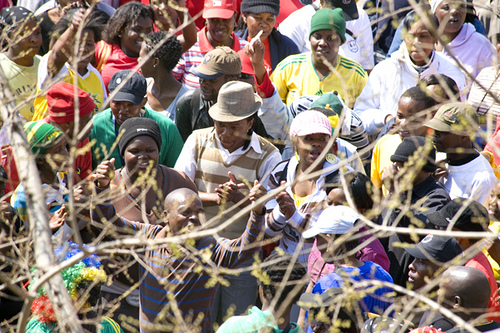Human Traffickers Exploit Syrian Children
 In February 2013, Lebanon’s Internal Security Forces (ISF) broke up a ring of child traffickers exploiting refugee children from Syria in Ras Beirut. These arrests called attention to the vulnerability of Syrian children to a variety of abuses. These children are highly vulnerable to trafficking, child marriage, child labor, sexual abuses, illness and death. Additionally, large numbers remain out of school and many have been orphaned as a result of the conflict in Syria.
In February 2013, Lebanon’s Internal Security Forces (ISF) broke up a ring of child traffickers exploiting refugee children from Syria in Ras Beirut. These arrests called attention to the vulnerability of Syrian children to a variety of abuses. These children are highly vulnerable to trafficking, child marriage, child labor, sexual abuses, illness and death. Additionally, large numbers remain out of school and many have been orphaned as a result of the conflict in Syria.
Many trafficked children either beg or sell goods like tissues and gum on street corners. The Lebanese non-profit organization Basmeh and Zeitooneh estimates that each child can earn as much as $300 each month for their traffickers. Each day, traffickers drive children far from their homes in a van, then deposit them on corners around the city where they work in carefully organized shifts.
Trafficking networks target Syrian children because of their vulnerability. As refugees, these children often lack proper identification and are desperate for money and food. Some of these children are orphans, while other have parents who give their children to traffickers in order to make ends meet. With the number of Syrian refugee children continuing to grow, Lebanon has increasingly been faced with the problems of child trafficking and labor.
“Traffickers think about easy money and how to diminish costs. They don’t have to put in any effort if they invest in their children…The major affected population is Syrian, but you can’t say that other nationalities aren’t vulnerable. Every child coming from bad economic conditions and armed conflict is a potential victim of trafficking,” explained Colonel Elias Asmar, the head of the ISF Moral Protection Department.
When authorities discover trafficking operations, they face the problem of trying to find shelter for the child victims. Lebanon does not have nearly enough shelter programs to handle all of the children in need of support and rehabilitation. Even existing programs struggle with a lack of funding that severely limits the number of spaces available and their ability to provide adequate services including psychotherapy.
Nearly 500,000 Syrian children live as refugees in Lebanon with one in five of these children being under the age of five. Many of these children arrived in Lebanon without adult guardians and continue to live without adequate support and protection.
“Two showed up at the town one day; they were in agony, they were helpless. God knows how they found their way from Syria. They told me that their parents got shot, along with everyone from their family, and they escaped. They are so young, it’s a miracle they are still alive. I did my best to take them in and help them. They are still in shock and are very depressed; they had nightmares and would run out screaming from the room. I don’t know what to do with them except take care of them,” explained a local sheik who assists refugees arriving in Lebanon.
Creative Commons Love: Trocaire on Flickr.com
Written by Amanda Lubit










